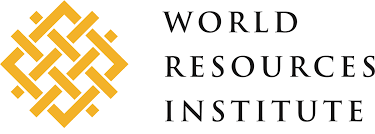Worldwide individuals and communities are taking democratic change into their own hands—and the impact of those efforts:
Students Rally in Dhaka, Call for “New Bangladesh”
- On August 5, 2025, around 1,000 students led by the National Citizen Party rallied at Dhaka’s Shaheed Minar, demanding a new constitution to replace the 1972 version. They presented a 24-point agenda for democratic restructuring amid political uncertainty following the end of Sheikh Hasina’s long rule. Simultaneously, the BNP student wing also mobilized support from young voters.
- Impact: This surge of youth-led civic engagement signals a renewal of grassroots energy in Bangladesh’s democracy. Their constitutional demands underscore a desire for fundamental political transformation and greater citizen participation in governance.
Mustofa Tajzadeh Emerges as a Unifying Figure in Iran’s Opposition
- On August 8, 2025, media spotlighted political prisoner Mostafa Tajzadeh as a rare unifier among Iran’s fragmented pro-democracy opposition. Despite being sentenced to another five years in prison, he continues advocating for democratic reform, supports the “Women, Life, Freedom” movement, and calls for dismantling the Supreme Leader’s authority in favor of a constituent assembly.
- Impact: Tajzadeh’s enduring influence illustrates the resilience of personal leadership under repression. His moral credibility bridges ideological divides within Iranian society and provides a focal point for envisioning peaceful democratic transition—even from behind bars.
Hong Kong Activists Establish an Exile Parliament, Face Arrest Warrants
- The Hong Kong Parliament, a symbolic exile legislative body democratically elected online in May and officially inaugurated in July 2025, created a new platform for diaspora political inclusion. In response, authorities issued arrest warrants for its founders and participants on August 4, labeling them subversives and placing bounties on 16 individuals.
- Impact: The formation of this parallel civic legislature emphasizes the persistence of democratic organizing despite authoritarian suppression. The government’s harsh reaction underscores the continued peril activists face—and highlights the growing importance of digital and transnational democratic spaces.
Summary Table
| Region / Movement | Key Development | Impact Summary |
|---|---|---|
| Bangladesh (Dhaka) | Student-led rally for new constitution | Youth-led push for democratic renewal and institutional reform |
| Iran | Tajzadeh’s continued advocacy from prison | Moral leadership galvanizing fragmented opposition |
| Hong Kong (in exile) | Formation of exile parliament, crackdown follows | Innovative democratic organizing under authoritarian pressure |
Tomelilla, Sweden Adopts Doughnut Economics
- Tomelilla, a small Swedish town, implemented Kate Raworth’s doughnut economics framework in municipal planning—embedding ecological ceilings and social foundations into budgeting, urban design, transport, and procurement.
Impact:
-
- Shifted decision‑making toward regenerative and low‑carbon pathways (e.g., refurbishing instead of building anew, free public transit for youth).
- Showcased how even small municipalities can prioritize wellbeing within planetary limits.
- Inspired other cities and municipalities globally to explore similar sustainable economic models.
Localized
Op‑ed: Environmental Protection As Economic Gain (Australia)
- Economist Nicki Hutley argued that preserving nature and fighting climate change deliver clear net economic benefits—from cost savings in avoided climate disasters to job creation in clean energy.
Impact:
-
- Strengthened the narrative that ecological stewardship supports, rather than hinders, economic prosperity.
- Highlighted reduced solar panel prices and high costs of inaction (~US $143 billion/year) as economic logic for transition.
- Supports momentum for policy reforms such as carbon pricing and nature‑inclusive planning in Australia and worldwide.
UK’s Planning Bill Nature Levy Faces Blowback
- UK’s proposed “nature levy” would let developers pay to bypass environmental protections. Economists and ecologists—including Partha Dasgupta—warned this creates a “license to kill nature.”
Impact:
-
- Raised alarm about weakening environmental safeguards and undermining ecological integrity in planning.
- Pressured policymakers to revisit or withdraw the provision, emphasizing need for independent regulation and systemic reform.
- Reframed ecological economics as crucial for aligning development with planetary boundaries.
Academic & Policy Developments
ISEE Launches Special Issue on Ecological Macroeconomics
When: Call opened June 18, 2025 (submissions open July 1, 2025)
- The International Society for Ecological Economics (ISEE) invited papers exploring integrated ecological‑macroeconomic models to understand post-growth futures, climate policy, and inequality.
Impact:
-
- Encourages development of models that capture economic–ecological–social feedbacks.
- Supports transition from conventional GDP-focused narratives toward wellbeing‑oriented policymaking.
IIASA Study: Economic Gains from Mining Quickly Fade
Researchers found that while industrial mining brings short-term economic boosts, benefits fade once global prices dip—even affecting neighboring regions.
Impact:
-
- Highlights ecological-economic vulnerability linked to commodity dependence.
- Supports policy emphasis on diversified, nature-aligned development pathways instead of extractivism.
Modelling Biodiversity & Pesticide Use Relative to Farm Size
The paper introduces a spatial ecological-economic framework showing small‑to‑mid‑size farms benefit economically from reduced pesticide use combined with habitat restoration, whereas large farms struggle to do so.
Impact:
-
- Informs policy design: environmental incentives should be tailored to farm structure.
- Promotes biodiversity via cost-effective, scale‑specific strategies for pest control and sustainability.
Summary Table
| Story | Timeline | Impact Summary |
|---|---|---|
| Tomelilla’s doughnut economics adoption | July 17, 2025 | Local innovation in wellbeing economy, global inspiration |
| Hutley op‑ed: environment as economic net benefit | July 17, 2025 | Reframes ecological values as economic strengths; bolsters climate policy |
| UK Planning Bill “nature levy” controversy | April 2025 | Catalyzed advocacy for stronger nature protections in development policy |
| ISEE call for ecological macroeconomics modeling | June–July 2025 | Advances integrated modelling for post‑growth and fair‑transition policy |
| IIASA mining-economic study | July 28, 2025 | Underscores risk of resource dependence; advocates sustainable diversification |
| Farm‑scale biodiversity model | May 2025 | Builds scale‑aware agri‑environment policy nexus for biodiversity gains |










